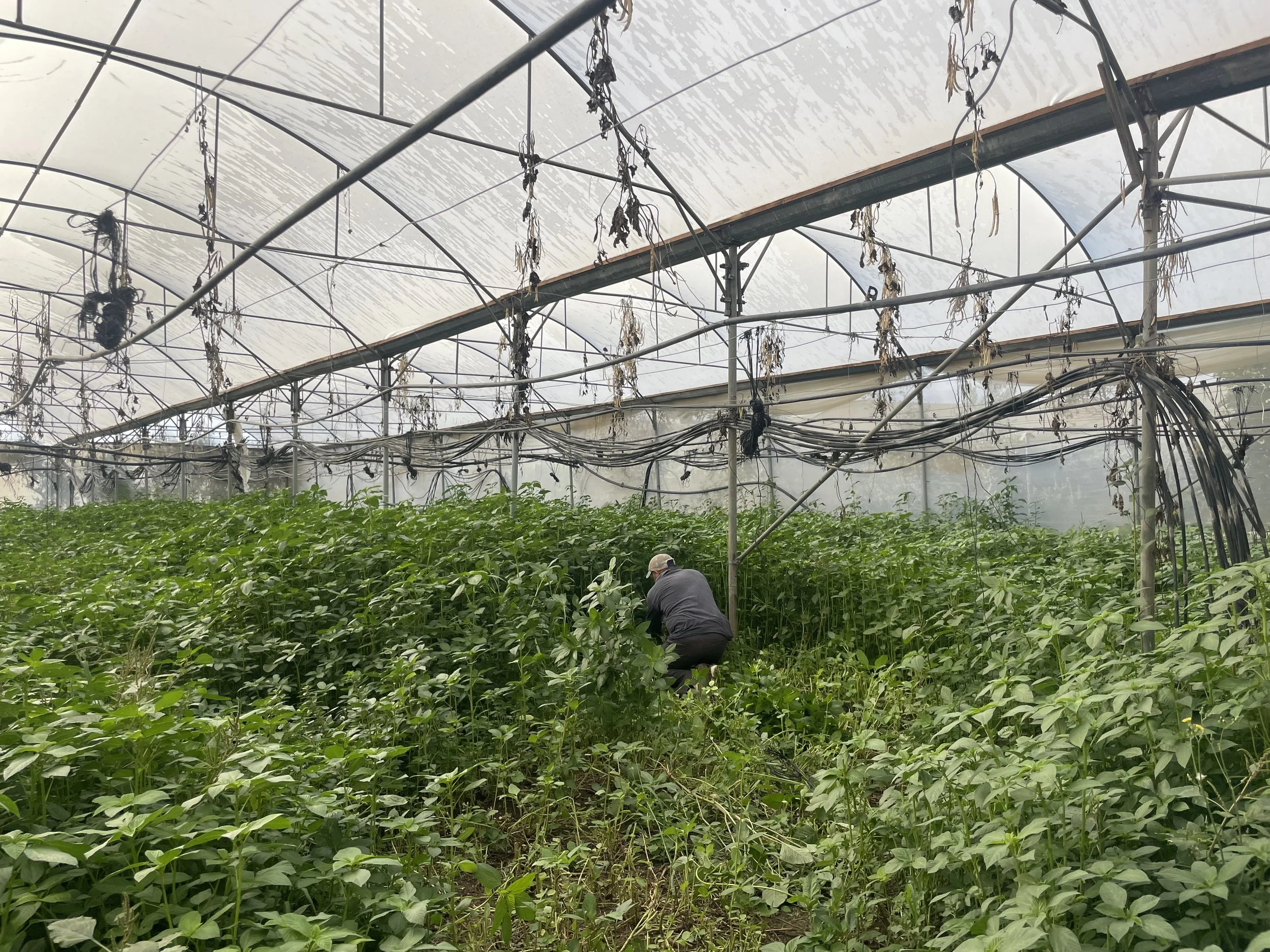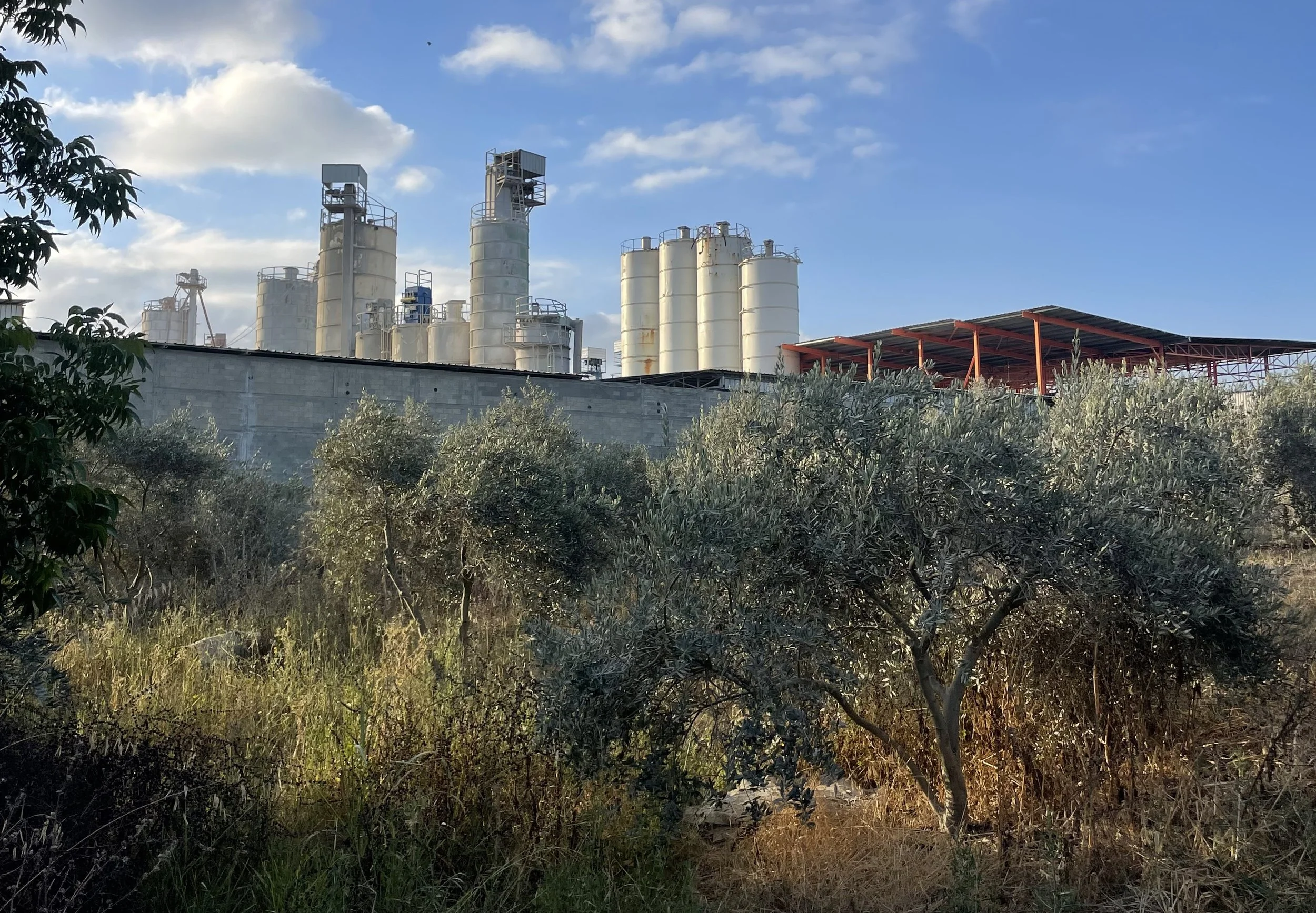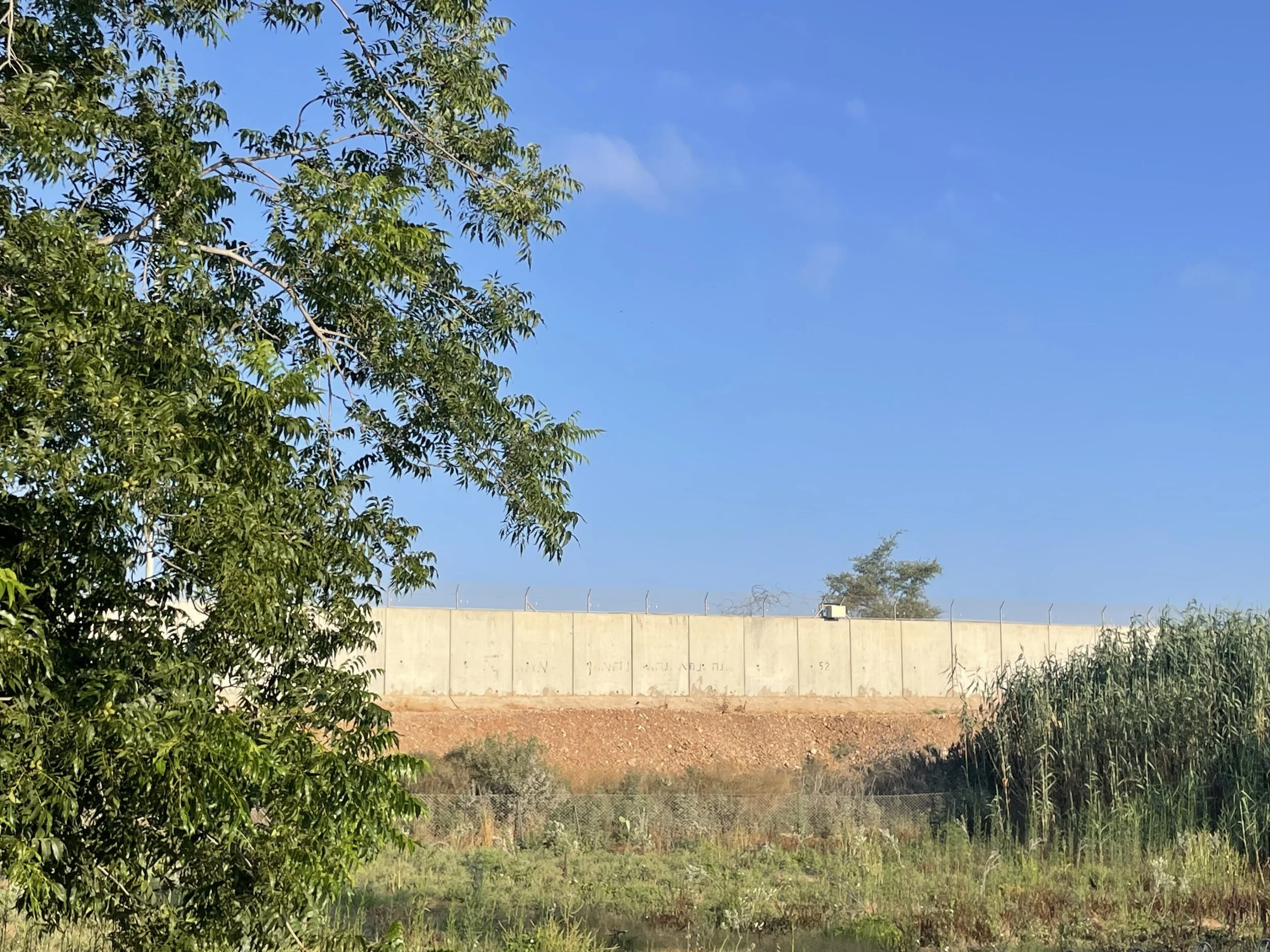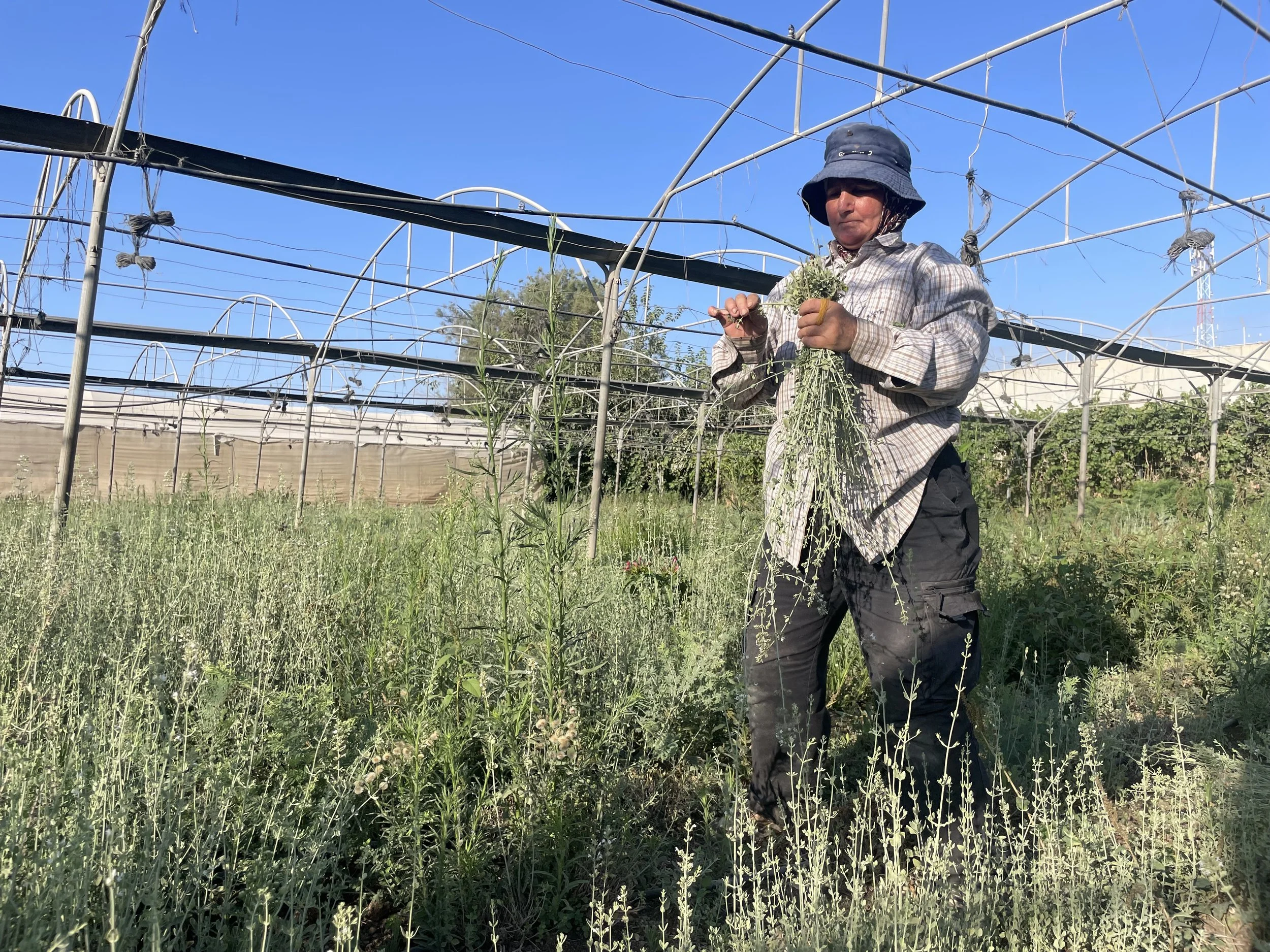Palestinian farmers thrown out of their land by the Israeli occupation
WEST BANK: The Hakoritna farm in the West Bank has belonged to the Taneeb-family since the 1920s. In one day they lost everything: the Israeli occupation has decided to demolish the farm and are preventing them from entering their land.
Oday Taneeb wakes up at 4AM every day to work at the farm.
“If you want my wife to die, prevent her from going to the farm for three days. She will die. The farm is everything, our future, our life,” Fayez (60) told me at the end of June.
Fayez Taneeb (65) and Muna (63) have been running their family’s farm in Tulkarem for over thirty years. The demolition order came after years of harassment from occupation soldiers.
I visited the family a month before the decision was sent to the family. It means they are not allowed access to their land, and the Israeli Occupation Forces (IOF) have ordered the demolition of all infrastructure on the Farm.
This is far from the first time the family is subject to colonial violence. The farm is right next to the apartheid-wall (the separation barrier) in the West Bank and it is surrounded on three sides.
The wall separates the areas occupied by the Zionists in 1948 from the West Bank, and was built in 2002. The occupation stole half of their land when they built it and since then, occupation soldiers have been monitoring them from the watchtowers along the wall, often shooting towards the farmers.
The pesticide factories next to the wall pollute poisonous gas.
When we arrived at the farm early in the morning loud mechanical sounds were surrounding us from the eight factories that are towering over the farm. In 1983, the occupation moved the factories from the occupied cities Netanya and Kfar Saba due to potential harm to the health of the local Israeli residents. Instead, they built them in the West Bank near the Palestinian villages.
They produce pesticides and fertilizers, and the pollution from them is dangerous to inhale. Numbers from the Palestinian Environmental NGOs Network show that there has been an increase in diseases related to the pollution by 20% among the Palestinian residents living nearby them.
The concrete wall hovers over the green fields of za’atar, lettuce, spinach and grapes, always reminding the farmers that they are caged in. Right behind the wall, there is a tall pole with cameras - the Palestinians living in the nearby areas are always monitored.
They are not allowed to cross the wall - Palestinians living in the West Bank can only enter the 1948-areas if they have permission from the occupation, one of the countless rules the apartheid regime forces upon the Palestinians. Although the sea is only a short car-ride away, their son Oday Taneeb (35) has only seen it once in his life.
“Me and a friend climbed over the wall many years ago, and ran to the sea. That would never be possible now,” Oday said, pointing towards the concrete wall.
The wall hovers over the farmers while they are doing their work.
A school in steadfastness
Sitting outside their home about 800 meters from the farm, Taneeb was organizing the last batch of green grapes for the day. He said that he would like to write about his life, but there is no time for it.
“The stories and problems that are happening to us are so many. What is happening to us is like a school — a school in life, in struggle, in steadfastness, in how you can live and resist,” he said.
He has been advocating for Palestine since he was young, travelling around the world to speak about the Palestinian cause. He has spoken to the United Nations Human Rights Council in Geneva, and he has worked as a coordinator for the Palestinian Farmers Union. These past two years have been the worst so far.
For months at a time the occupation forces have been preventing them from entering their land.
“My wife is the driving force behind the farm, she works every single day and she gives us strength to continue,” Fayez said.
In June, they were allowed to go back to work but the destruction was devastating: the occupation soldiers had ruined the majority of their crops and had been letting pigs out on the field.
When going out of their home in the mornings, they are prepared to face the occupation soldiers at any moment.
“You have to face them and then go home again to your children. How can you change your mental state quickly and be with the children and play and laugh, when just a few moments ago you were fighting with a soldier while you saw your friend bleeding? You live with more than one persona. ” Fayez said.
The youngest son of Fayez and Muna, Amer (22) is also working at the farm. He said that he loves working on their land, that he would never think of doing anything else in his life. Amer said that their fight for the homeland gives him mixed feelings.
“From another perspective, it's a mixed feeling. Because you love your child, because you love your family, you go out and fight for the cause. To save your children, your family, the people that you love,” Amer added.
His friend, 22-year-old Islam Abu Zant was killed the first Friday after 7th of October 2023 during a demonstration near the wall in Tulkarem. Usually, the occupation forces would shoot tear gas but this time it was different, he said.
“When the military came out they started shooting fire bullets. On that day, in just two hours, 7 people were killed. One of them was my friend. He had such a beautiful soul, he loved helping people,” he said.
According to the Colonization and Wall Resistance Commission, Israeli forces and settlers have carried out 11,280 attacks against Palestinian citizens and their properties in the first half of 2025.
This escalation in colonial violence has affected the Taneeb family gravely. Not just through the attacks that affect them directly, but also due to the news they are watching every day from Gaza.
“The soil is everything”
“The death that we started seeing caused us to die from the inside. Where is the world? When you think about it, it's not normal. It makes the human being dead inside, there are no feelings. You cannot feel. You will die if you keep on feeling,” Amer said.
When his father passed away in the 80’s, Fayez was not planning on taking over the farm. But that quickly changed when the occupation soldiers started coming to their land.
“The soldiers started coming every day to the farm, playing sports, 100-150 soldiers. I did not want to be a farmer, but my friends told me I had to go because they were there and wanted to occupy the land,” he said.
As the years have passed by, the family has become more and more connected to his farm, he cannot stand being away from it. Now, three weeks have passed without them going to the farm. They have lost their livelihood and the feeling it gives them to be at the farm:
“This feeling is between you and the plant and the land. You cannot find this feeling anywhere else. The soil is everything, our mother, our father, it is everything,” Fayez said.
Muna Taneeb works at the farm every single day. Now, the occupation has stolen her land and are prohibiting her from entering it.



